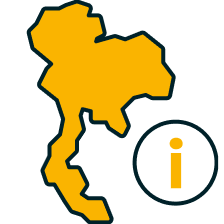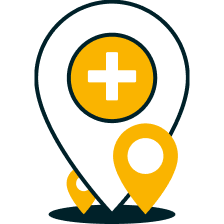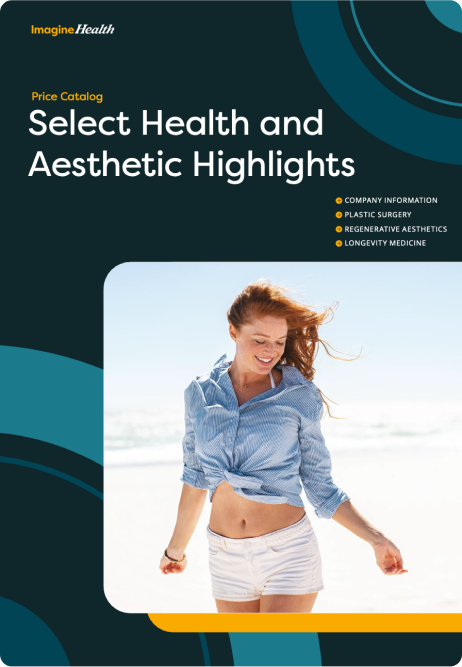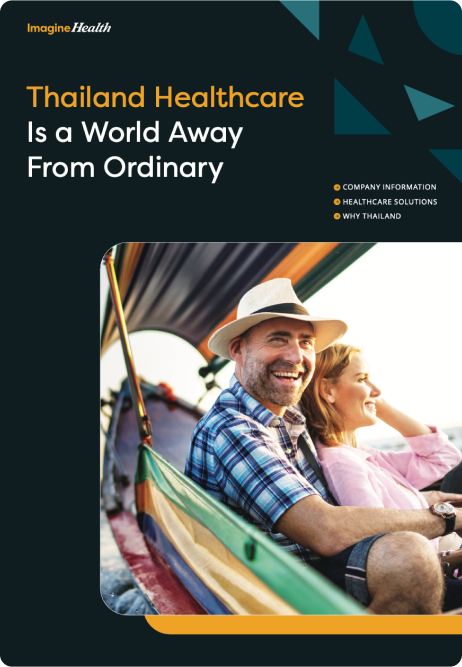Key takeways
Blue Zones are regions with the most centenarian citizens
The dietary habits of these zones provide interesting insights
Whole foods trump processed food and improve longevity
Before we look at our 11 dietary tips for a long healthy life, let us understand what Blue Zones actually mean. These are regions across the globe that are home to the highest number of centenarians. What is important to note here is the fact that these individuals lead a long life with minimal ailments, which is certainly something to aspire to. This article summarizes the results of more than 150 surveys that aimed to understand the factors that set centenarians apart from others, with an emphasis on their diets.
Table of contents
Tip 1: Veggies are not optional
One crucial lifestyle that is common in Blue Zones is the high consumption of vegetables. The fact that garden vegetables are seasonal does not stop them from enjoying their benefits throughout the year, by either drying them or pickling them.
However, not all of us have the time or resources to grow vegetables in our homes. But does that mean we completely give up on the wide-ranging benefits that are provided by vegetables? Obviously not! We just need to turn towards leafy vegetables such as kale, spinach, collards, and so on. Seasonal greens can go a long way in enhancing your meals and contributing toward your anti-aging efforts.
You can incorporate veggies into your diet in other ways too. For instance, plant-based oils are considered superior to those extracted from animals. Specifically, Olive oil is widely used and utilized in Blue Zones. This popularity is understandable since research states that olive oil is capable of improving the levels of good cholesterol, while inversely affecting bad cholesterol.
Finally, studies have also confirmed that for middle-aged people, the mortality rate can be pushed down by 50% by consuming 6 tablespoons of olive oil on a daily basis.
Tip 2: Watch your meat consumption
While a majority of Blue Zones do not shun meat entirely, it does not take up the center stage on most days. Instead, it is incorporated either occasionally or as a side. Certain studies have also revealed that vegetarians may outpace meat-eaters by about ten years.
If you are not keen on cutting out meat entirely from your diet, you can still minimize its consumption. For instance, individuals residing in Blue Zones typically eat meat about five times a month, with the quantity averaging around 57 grams during each serving. Although it is impossible to factually claim that replicating this exact quantity will lead to longevity, there are enough studies that have revealed that minimizing meat consumption does improve health.
In fact, one particular study – Adventist Health Study 2 – was initiated in 2002 and has been monitoring 96,000 Americans. The results of this long-standing research revealed that pesco-vegetarians are typically masters of longevity. These are individuals who primarily prescribe a vegetarian diet, with the occasional meal including fish. If you love a good steak or other forms of meat, you could steal or reserve it for special occasions, and on other days, make the most out of the favorite meat substitute in Blue Zones – extra-firm tofu. It is also highly proteinaceous, so it is great for gym-goers.
Tip 3: Don’t get too fishy
While eating fish is recommended for a long healthy life, do not overdo it. People in Blue Zones certainly indulge in seafood, but not every day. The recommended quantity is 85 grams thrice a week.
Beyond the crucial aspect of health, it is also important to think about ethics. We highly recommend opting for sustainable seafood options such as anchovies and sardines. As an added benefit, their small sizes decrease the likelihood of mercury or PCB contamination.
Since individuals in Blue Zones cannot afford to negatively impact their natural resources, they refrain from following the footsteps of corporate fisheries. Instead, they are more judicious with their consumption and focus on sustainable species that are safer to consume.
Tip 4: Transform how you consume dairy
Did you know that lactose intolerance affects about 60% of the world’s population? But that issue only persists in cow milk, since goat’s milk has both lactose and lactase. Lactase is an enzyme that helps break down lactose, thereby helping sidestep this widespread issue.
What is interesting to point out is that in the majority of Blue Zones, sheep and goat milk are consumed more often than cow milk, which may be attributed to the high fat and sugar content in the latter. Milk is typically converted to dairy products such as cheese or yogurt.
While we cannot confidently claim that their health and longevity are a direct consequence of their dairy consumption, there are substantial studies that delve into their association.
Tip 5: Skip those daily eggs
While you may love a good poached egg every day for breakfast, those in Blue Zones do not eat eggs as often. Instead, depending on their love for eggs, it is incorporated twice to four times a week. Usually, one egg is added to a vegetarian dish as a healthy side. Regardless of what meal you have planned for the day – a delicious corn tortilla or a wholesome soup – an egg can be effortlessly added to your meal. A popular breakfast option in Blue Zones in the Mediterranean region includes one fried egg with bread, olives, and almonds.
They are also extremely conscious of the eggs they eat. Eggs from free-range chickens are preferred since they are not pumped up with hormones or antibiotics and eat natural food. Consequently, they are an incredible source of Omega-3. However, note that egg yolks are not good for diabetic patients. Men may also become prone to prostate cancer when they consume eggs excessively, while in women, kidney issues may emerge.
As such, ensure that you do not eat more than three eggs each week.
Tip 6: Beans all the way
Let’s get straight to the point: beans are used very generously in Blue Zones. Half a cup of beans a day is a great way to improve your longevity. While black beans are popular in Nicoya, chickpeas and lentils take the front seat in the Mediterranean. In essence, the consumption of beans in this region is four times more than in America.
What makes beans so special? They are packed with nutrients – some fat, 77% complex carbs, and 21% protein, while also being rich in fiber. Not only are they inexpensive, but also extremely diverse.
Beans are also extremely wholesome and they greatly assist your cells. Once you start adding beans to your meals, you will notice a decrease in your junk food intake.
Tip 7: Sugar is the gateway ingredient to poor health
If you want to add sugar to your meals, try not to surpass the 28-gram limit. Sugar is purposefully used as opposed to mindlessly in Blue Zones. Despite consuming natural sugars to the same extent as North Americans, the amount of added sugars in their meals is relatively one-fifth.
Here, natural sugars are not a cause for concern. But added sugar is definitely something that must be cautiously consumed. What is interesting to note is the fact that added sugar increased by 25% in foods manufactured in America between 1970 and 2000. On average, this would amount to a rise of 22 teaspoons per day for each individual.
This type of sugar is added to yogurts, soft drinks, and various other everyday ingredients and is not good for your body. In addition to adversely affecting your immune system, excess sugar can increase insulin, which could cause diabetes and a gain in weight. All of this can potentially decrease your lifespan.
To avoid such drastic implications, avoid eating candies and baked goods frequently. Instead, reserve them for special occasions. If you need to drink your morning beverage with some sugar, limit it to 4 teaspoons a day. Finally, avoid consuming products that have sugar as one of the top ingredients.
Tip 8: A nutty life
Centenarians from Blue Zones typically consume 56 grams of nuts each day.
Try to eat a couple of handfuls of unsweetened nuts each day. Whether you choose to enrich your meals with pistachios or almonds, you are likely to increase your overall lifespan by at least a couple of years,”
Henning Kalwa, CEO of ImagineHealth explains.
If you are more willing to diversify your nut consumption, note that you can derive Magnesium and Vitamin E from almonds, Folate and protein from peanuts, Selenium from Brazil nuts, Magnesium from cashews, and Omega-3 fats from walnuts.
If your specific goal is to decrease your cholesterol levels, opt for peanuts, walnuts, and almonds. Overall, your lifespan and health span may both witness positive consequences once you begin eating nuts.
Tip 9: Whole grains are wholesome
If you want to replicate Blue Zone diets for optimal health, pick either sourdough bread or completely wholegrain breads. Barley, rye, and wheat are all great options since they do not lead to spikes in insulin, unlike commercial bread. They also provide abundant nutrients, such as Magnesium, Selenium, and Tryptophan. Moreover, since they are more fibrous in nature, you will also witness improved gut health.
Sourdough lovers can rejoice, since traditionally, sourdough breads in Blue Zones use dough fermented with lactobacilli bacteria. This decreases the gluten levels of the bread, while also reducing the meal’s overall glycaemic load. As a result, you are looking at bread that is a healthy feast and easily digestible. More importantly, it is unlikely to be stored as fat since it is an energy-releasing form of food.
Tip 10: Choose whole foods, always
This is quite basic: foods with just one single ingredient or those that are minimally processed are always healthier than other available options. People in Blue Zones also don’t pick and choose parts of a whole food. For instance, items like low-fat yogurt and egg-white omelets are practically unheard of. They believe that eating foods without eliminating certain “bad” aspects, would enrich their bodies with the entire range of minerals and vitamins required.
Now, it is important to define whole foods. Essentially, these are items that do not undergo excessive processing. Instead, they are consumed raw, ground, fermented, or cooked. Generally, a food item purchased from a store is considered highly processed if it has more than five ingredients.
By this rule, tofu is perfect for consumption, while Cheetos may not be ideal. Usually, simple dishes are consumed in Blue Zones, where locally sourced natural ingredients are used. Slow cooking or fermentation are the two most commonly employed cooking techniques, which improve the bio-availability of nutrients. In addition to optimizing health, this approach to consumption also decreases artificial preservative intake.
Tip 11: Raise your glass

In general, Blue Zones rely on simple beverages like tea, coffee, and water. Occasionally, red wine is consumed in moderation. It is worth noting that soft drinks are usually absent from their diets, which tend to be sugar bombs.
Water
Hydration is certainly a necessity for a healthy lifestyle. In general, try to drink at least 7 glasses of water each day. This claim has been validated by several scientific studies since blood flow increases with hydration while clotting risk decreases significantly.
Coffee
Coffee is loved and celebrated widely in Blue Zones and according to research, it can help decrease the risk of both Parkinson’s disease and dementia. However, moderation is key here.
Tea
Across Blue Zones, tea is a popular choice. While green tea can help decrease the risk associated with heart disease as well as various cancers, herbal teas such as dandelion and rosemary are highly anti-inflammatory.
Red wine
Finally, there are various advantages associated with the consumption of red wine too, although it should be enjoyed moderately. Research has proved that when compared to those who do not consume alcohol at all, those who occasionally drink a glass or two with friends live longer. However, if you are currently a teetotaler, there is no reason to start drinking now, since even fruits and veggies contain the antioxidant Resveratrol that gives alcohol its health benefits.
Find Out ImagineHealth’s Exclusive Healthcare Offers in Thailand
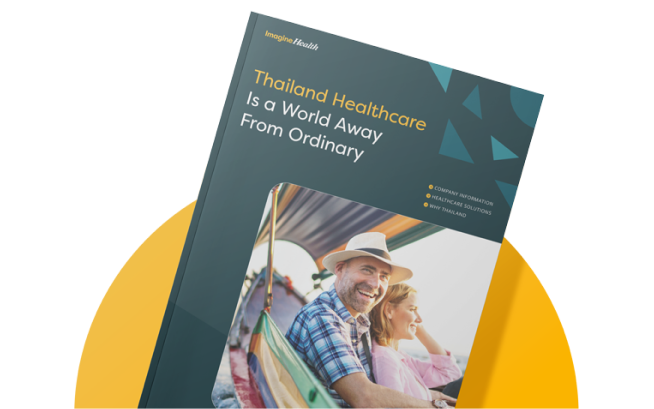
Conclusion
Replicating the diet of Blue Zones entails increasing your consumption of whole foods, emphasizing moderation, and cutting out highly processed food. Opt for fruits, whole grains, greens, and beans, and cut out sodas, chips, and other processed sugary items. Whole foods are not only healthy but also extremely tasty and promote longevity. The importance of hydration cannot be overemphasized. A healthy diet is all about simplicity. So, transform your life by tweaking your diet.
Look after the foundation of your health (your diet) and contact ImagineHealth for impactful longevity interventions to actively reduce your biological age.
Customer testimonial
ImagineHealth has helped me understand the significance of a healthy diet. Earlier, I was not as aware of the implications of the food I consume every day. Now, I know what to eat and what to cut out to lead a long healthy, and happy life!

